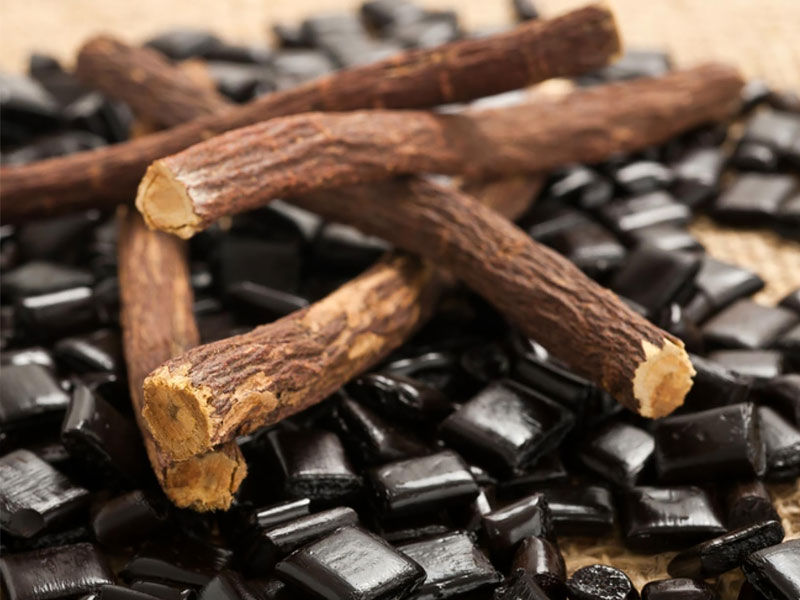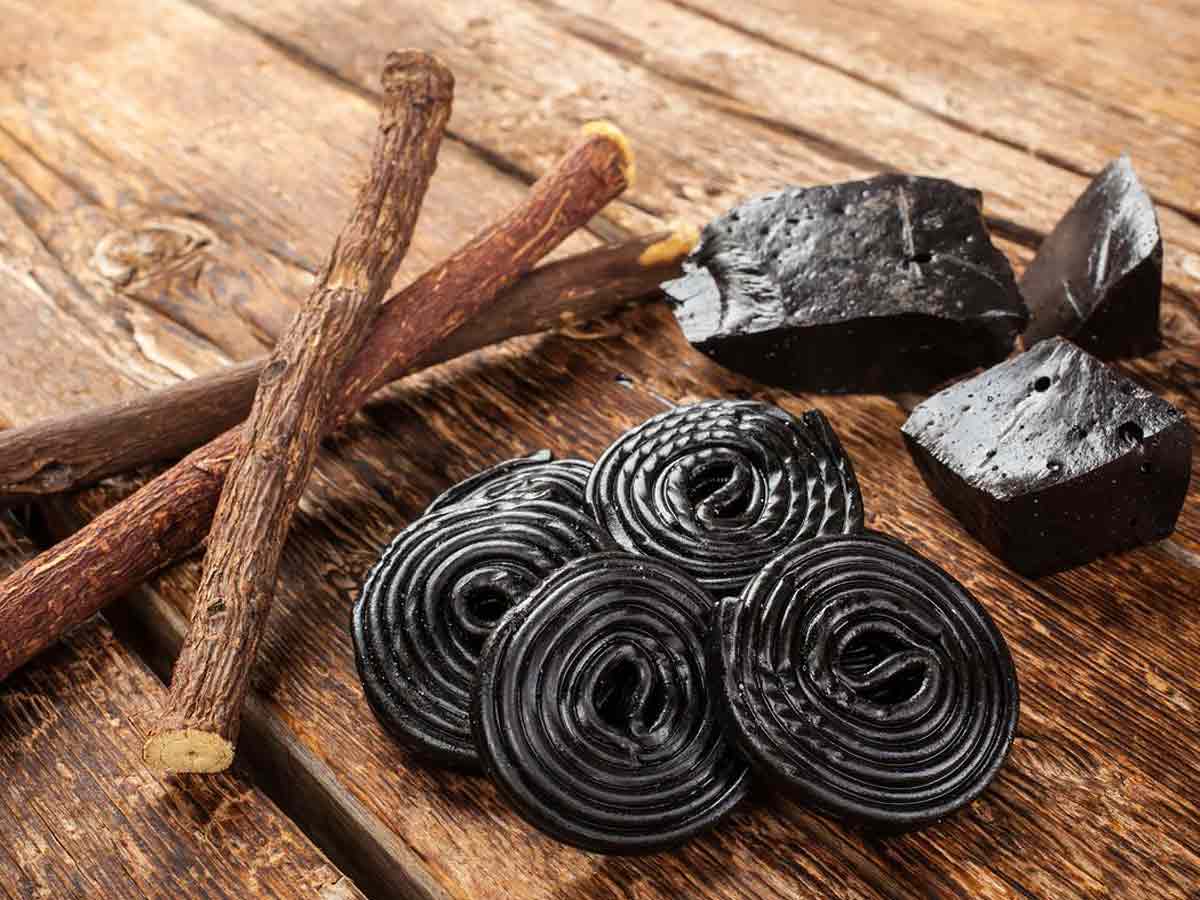Licorice is a herb that has been used to treat a range of diseases for thousands of years. Although licorice has many therapeutic properties, scientific evidence only supports some of its applications, and it may not be adequate for everyone. Licorice is used as a sweetener in candies. It is sometimes used to conceal the flavor of pharmaceuticals due to its sweet flavor.
Licorice is derived from the root of the licorice plant. It is one of the world’s oldest herbal treatments (Glycyrrhiza glabra). Native to Western Asia and Southern Europe, it has always been used to treat several diseases and flavors for candies, beverages, and medicines. Despite its long history, only a few of its applications have been scientifically validated. Ancient Egyptians employed licorice root to quench their thirst during the war. Traditional Chinese medicine uses it to treat digestive, skin, and respiratory problems. While not all historical applications of licorice root are supported by science, there are numerous evidence-based health advantages.

Health Benefits of Licorice
Licorice root is widely used to treat acid reflux, hot flashes, and bacterial and viral infections. It’s commonly sold as a pill or a liquid supplement. Licorice tea is also reported to help with sore throats. At the same time, topical gels are said to help with skin issues, including acne and eczema. In addition, licorice is used to flavor a variety of meals and beverages.
Here are some health benefits of Licorice
Digestion
Consumption of licorice root may provide some gastrointestinal advantages. Although further research is needed, a few small trials have shown promise. Adding Glycyrrhizin (an active ingredient in licorice root) to traditional GERD therapies dramatically improved reflux, stomach discomfort, and heartburn symptoms, according to a small trial of 58 persons with GERD. A short research of 50 adults revealed that taking licorice capsules twice a day helped with stomach relief.
Skin Benefits
Licorice root is not just utilized as a food supplement; it’s also found in several lotions and ointments. According to some studies, licorice can be used topically in skin creams and lotions to help relieve dermatitis symptoms such as red, itchy skin. Says. A short research of 281 adults revealed that using a glycyrrhetinic acid ointment helped relieve dermatitis symptoms like dry, itchy, red, and swollen skin. Another research of 1221 adults with rosacea found that applying a lotion containing Licochalcone A (an active ingredient in licorice root) twice a daily for four weeks dramatically reduced redness.

Tooth Decay
According to some studies, licorice may aid in the killing of bacteria that cause tooth decay in the mouth. Even though licorice has shown antibacterial activity in the lab, human studies have yet to show its cavity-fighting properties. However, because of its capacity to suppress the growth of oral bacteria, it can be used as a cavity therapy in the future.
Test-tube studies also suggest licorice root extract be efficient at guarding against germs often associated with cavities and tooth decay. 66 preschool-aged children were given sugar-free lollipops containing 15 mg of licorice root twice a day during the school week in three-week research. The number of Streptococcus Mutans bacteria, the main cause of cavities, was considerably reduced after the lollipops were consumed.
Also Read, Miraculous benefits you can get from a pinch of Hing
Respiratory conditions
Both licorice root extract and tea may help with upper respiratory diseases because of their anti-inflammatory and antibacterial properties. In particular, glycyrrhizin extract from licorice root has been shown in animal experiments to effectively reduce asthma, especially when combined with contemporary asthma medications. Furthermore, limited test-tube and human research suggest that licorice root tea and extract can help to prevent strep throat and sore throat following surgery. While minimal human research has yielded similar outcomes, more thorough and long-term research is required.
Hepatitis C
Glycyrrhizin may aid in the treatment of hepatitis C, a liver-infecting virus. Hepatitis C can induce inflammation and long-term liver damage if left untreated. According to researchers, Glycyrrhizin has an antibacterial effect against hepatitis C in cell samples. It may hold promise as a future therapy for this virus. In Japan, doctors utilize an injectable version of Glycyrrhizin to treat chronic hepatitis C patients who have failed to react to previous treatments. Laboratory investigations in Japan suggest that it may be useful in this regard.
Anti-cancer Properties
The licorice root extract has been examined for its preventative effects against some types of cancer due to its concentration of various plant components with antioxidant and anti-inflammatory properties. Licorice extract and its components, in particular, have been associated with delaying or inhibiting cell proliferation in malignancies of the skin, breast, colorectal, and prostate. The research implications on human cancers are unknown because it is limited to test tubes and animals. However, licorice root extract may help treat oral mucositis, a painful mouth sore that can occur as a side effect of chemotherapy and radiation in cancer patients.

Precautions!
For millennia, licorice root has been used in traditional medicine to treat digestive difficulties, sore throats, and skin problems. While study into these possible health advantages has begun, the truth is that we still have a lot to understand about what licorice root can and cannot do. According to the National Institutes of Health, if you decide to try licorice root, keep in mind that large amounts are not recommended, especially for pregnant women and individuals taking certain drugs. According to the USDA, even licorice candy isn’t safe in large quantities—eating two ounces or more every day for two weeks, or longer can cause major problems.

























